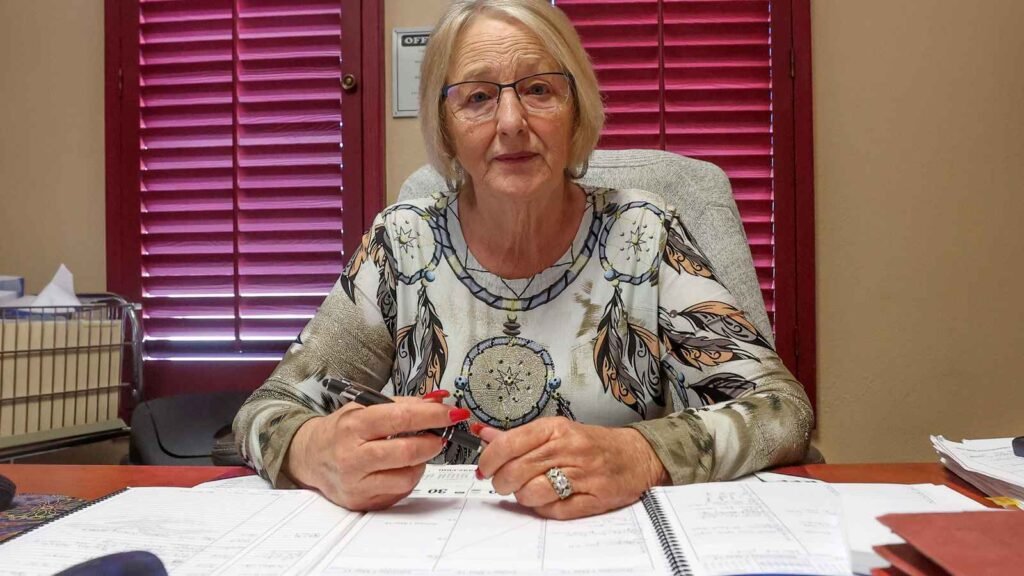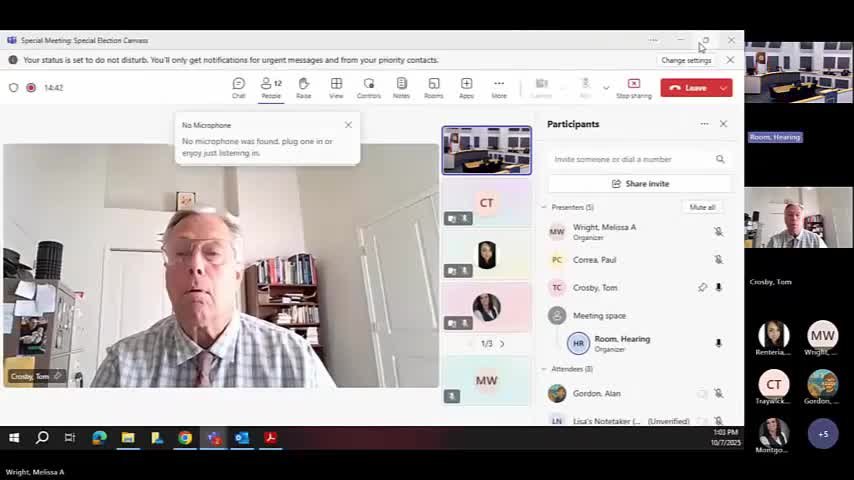Gila County’s reliance on Medicaid amid political divide
In Grove, a town in Gila County, Arizona, many residents depend on Medicaid. This area is notably conservative, with around 70% of voters supporting Donald Trump in the last election. However, up to 40% of the population, which has nearly doubled over the last 15 years, relies on Medicaid or the Children’s Health Insurance Program (CHIP), as reported by Georgetown University’s Center for Children and Families.
For individuals like Heather Heisler, Medicaid is crucial. Her husband, a rancher, benefits from the program after a serious accident resulted in a partial amputation. “If something happens, he goes to the doctor, he goes to the emergency room, he gets medicine,” she said, expressing concern that without Medicaid, their financial stability would be at risk.
Proposed cuts spark debate
Recently, congressional Republicans proposed over $700 billion in cuts to Medicaid, citing waste and a desire for stricter eligibility. The nonpartisan Congressional Budget Office warns that such changes could lead to over 10 million Americans losing their Medicaid coverage. This proposal has ignited significant discussion in communities like Grove, where Medicaid is seen as essential for healthcare access.
Local property manager Debbie Cox, who also volunteers at a domestic violence shelter, reflects a complex view of the program. “I think we need it literally every week,” she stated. “But I also think it needs to be significantly revamped because it’s been used for so long.” Her thoughts mirror those of many in Gila County, who feel both grateful for Medicaid and frustrated by its inefficiencies.
The role of Medicaid in rural America
The significance of Medicaid in rural towns like Grove is immense. Jobs in agriculture and retail often come with minimal health benefits, leading many to rely on Medicaid. It not only helps individuals but also supports many local hospital staff in lower-paying roles. Harold Dupper, the chief financial officer of a local hospital, underscored this reliance.
Joan Alker, who heads the Georgetown University Center for Children and Families, addressed Medicaid’s increasing importance. “We really stepped in to address a lot of the shortcomings in our health care system,” she remarked, especially in areas facing high disability rates and low-income levels where Medicaid acts as a crucial safety net.
Community perspectives on Medicaid reform
Some residents support Medicaid reform to curb waste, while others fear losing vital coverage. Retiree Rick Uhl thinks that tighter regulations are necessary, stating, “There’s a lot of waste and money is not being accounted for, and I think that’s a shame.” Conversely, retirees David and Linda Sander are concerned about the potential fallout for their neighbors dependent on Medicaid. Linda pointed out, “She wouldn’t be able to live without it.”
This illustrates the nuanced relationship rural, conservative communities have with government assistance. While there’s a strong skepticism toward federal spending, many also recognize how crucial Medicaid is for healthcare access.
Broader implications of Medicaid cuts
Medicaid’s expansion under the Affordable Care Act greatly broadened healthcare access for low-income Americans, with enrollment rising from 56 million in 2005 to over 78 million in 2022. However, proposed cuts threaten to undo this progress, particularly in states that leaned toward Trump in the last election. A KFF Health News analysis suggests that over two-thirds of counties with the fastest Medicaid enrollment growth since 2008 are in Republican-leaning states.
Bob Ward, a voter who has worked on polls for both Trump and the Coalition Defending Medicaid, mentioned a shift in how people view government healthcare roles. “There are times when the government plays a role in getting people health care, and that’s okay,” he observed. This changing viewpoint could challenge Republican lawmakers aiming to cut Medicaid funding.
As Congress deliberates on Medicaid’s future, communities like Grove remain uncertain. Some residents are open to reforms, while others fear losing essential programs that have become vital to their survival.
For rural communities that depend on Medicaid, the stakes are significant. The outcome of this debate will influence not just individual lives but also the broader discussion regarding government involvement in healthcare.







